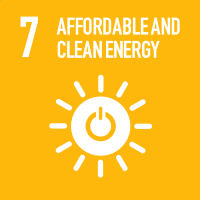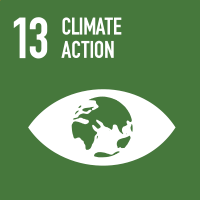Studying at the University of Verona
Here you can find information on the organisational aspects of the Programme, lecture timetables, learning activities and useful contact details for your time at the University, from enrolment to graduation.
Type D and Type F activities
This information is intended exclusively for students already enrolled in this course.If you are a new student interested in enrolling, you can find information about the course of study on the course page:
Laurea magistrale in Biotecnologie per le biorisorse e lo sviluppo ecosostenibile - Enrollment from 2025/2026Le attività formative di tipologia D sono a scelta dello studente, quelle di tipologia F sono ulteriori conoscenze utili all’inserimento nel mondo del lavoro (tirocini, competenze trasversali, project works, ecc.). In base al Regolamento Didattico del Corso, alcune attività possono essere scelte e inserite autonomamente a libretto, altre devono essere approvate da apposita commissione per verificarne la coerenza con il piano di studio. Le attività formative di tipologia D o F possono essere ricoperte dalle seguenti attività.
1. Insegnamenti impartiti presso l'Università di Verona
Comprendono gli insegnamenti sotto riportati e/o nel Catalogo degli insegnamenti (che può essere filtrato anche per lingua di erogazione tramite la Ricerca avanzata).
Modalità di inserimento a libretto: se l'insegnamento è compreso tra quelli sottoelencati, lo studente può inserirlo autonomamente durante il periodo in cui il piano di studi è aperto; in caso contrario, lo studente deve fare richiesta alla Segreteria, inviando a carriere.scienze@ateneo.univr.it il modulo nel periodo indicato.
2. Attestato o equipollenza linguistica CLA
Oltre a quelle richieste dal piano di studi, per gli immatricolati dall'A.A. 2021/2022 vengono riconosciute:
- Lingua inglese: vengono riconosciuti 3 CFU per ogni livello di competenza superiore a quello richiesto dal corso di studio (se non già riconosciuto nel ciclo di studi precedente).
- Altre lingue e italiano per stranieri: vengono riconosciuti 3 CFU per ogni livello di competenza a partire da A2 (se non già riconosciuto nel ciclo di studi precedente).
Tali cfu saranno riconosciuti, fino ad un massimo di 6 cfu complessivi, di tipologia F se il piano didattico lo consente, oppure di tipologia D. Ulteriori crediti a scelta per conoscenze linguistiche potranno essere riconosciuti solo se coerenti con il progetto formativo dello studente e se adeguatamente motivati.
Gli immatricolati fino all'A.A. 2020/2021 devono consultare le informazioni che si trovano qui.
Modalità di inserimento a libretto: richiedere l’attestato o l'equipollenza al CLA e inviarlo alla Segreteria Studenti - Carriere per l’inserimento dell’esame in carriera, tramite mail: carriere.scienze@ateneo.univr.it
Attenzione: agli studenti, che hanno conseguito il livello B2 d’inglese nelle loro carriere triennali, si sottolinea la necessità di sostituire il livello B2 d’inglese completo, previsto dal piano didattico, con il livello C1 informatizzato d’inglese oppure di acquisire altra competenza linguistica in una lingua comunitaria almeno di livello B1 completo.
3. Competenze trasversali
Scopri i percorsi formativi promossi dal TALC - Teaching and learning center dell'Ateneo, destinati agli studenti regolarmente iscritti all'anno accademico di erogazione del corso https://talc.univr.it/it/competenze-trasversali
Modalità di inserimento a libretto: non è previsto l'inserimento dell'insegnamento nel piano di studi. Solo in seguito all'ottenimento dell'Open Badge verranno automaticamente convalidati i CFU a libretto. La registrazione dei CFU in carriera non è istantanea, ma ci saranno da attendere dei tempi tecnici.
4. CONTAMINATION LAB
Il Contamination Lab Verona (CLab Verona) è un percorso esperienziale con moduli dedicati all'innovazione e alla cultura d'impresa che offre la possibilità di lavorare in team con studenti e studentesse di tutti i corsi di studio per risolvere sfide lanciate da aziende ed enti. Il percorso permette di ricevere 6 CFU in ambito D o F. Scopri le sfide: https://www.univr.it/clabverona
ATTENZIONE: Per essere ammessi a sostenere una qualsiasi attività didattica, incluse quelle a scelta, è necessario essere iscritti all'anno di corso in cui essa viene offerta. Si raccomanda, pertanto, ai laureandi delle sessioni di dicembre e aprile di NON svolgere attività extracurriculari del nuovo anno accademico, cui loro non risultano iscritti, essendo tali sessioni di laurea con validità riferita all'anno accademico precedente. Quindi, per attività svolte in un anno accademico cui non si è iscritti, non si potrà dar luogo a riconoscimento di CFU.
5. Periodo di stage/tirocinio
Oltre ai CFU previsti dal piano di studi (verificare attentamente quanto indicato sul Regolamento Didattico): qui informazioni su come attivare lo stage.
Verificare nel regolamento quali attività possono essere di tipologia D e quali di tipologia F.
Insegnamenti e altre attività che si possono inserire autonomamente a libretto
| years | Modules | TAF | Teacher |
|---|---|---|---|
| 1° 2° | Python programming language | D |
Carlo Combi
(Coordinator)
|
Bioenergy and Biofuels (2023/2024)
Teaching code
4S008300
Credits
6
Language
Italian
Scientific Disciplinary Sector (SSD)
BIO/04 - PLANT PHYSIOLOGY
Courses Single
Authorized with reserve
The teaching is organized as follows:
TEORIA
LABORATORIO
Learning objectives
The course aims to provide bases on the definition and characteristics of fuels of different origin and intended use, focusing on innovative biotechnological solutions for the production of biofuels. Among these, the bio-fuels of I, II, III and IV generation are particularly defined, including bioethanol, biogas, biodiesel and bio-hydrogen and the implications of their use for production processes and transport as well as the consequences for the environment. The course is divided between a general part that refers to bio-fuels from cultivated plants, yeasts and bacteria and a second part dedicated to unicellular algae, in which their biological characteristics and the methods for genetic and molecular biological analysis are described. Finally, examples are given for the use of these methods for the production of different types of bio-fuels and other products with high added value.
Prerequisites and basic notions
students must possess the typical knowledge of the degree in Biotechnology or Biology in the field of cell biology, genetics and general and plant biochemistry
Program
The "BIOENERGY AND BIOFUELS" study course deals with issues of economic and social relevance: it aims to provide biotechnological solutions for the sustainable production of plant biomass and to produce, from this, energy sources capable of replacing fossil fuels helping to minimize the emission of CO2 into the atmosphere which contributes to the greenhouse effect and is believed to be the main cause of rapid climate change. The course therefore describes:
1) the historical trajectory of the development of biofuels from cultivated plants, describing the production methods of so-called first (e.g. bioethanol from sugar cane) and second generation (biogas from organic residues or energy crops, biodiesel from oilseeds) biofuels such as soybeans, rapeseed or palm fruit), underlining their limits, mainly to the competition related to the allocation of arable land between food and energy crops
2) Bio-technological innovations that allow, through the engineering of organisms and micro-organisms used in the transformation of biomass, to optimize the production of different types of bio-fuels both for the yield and for the characteristics of the synthesized molecules .
3) The characteristics of unicellular microalgae as a privileged alternative to higher plants as producers of biomass. In fact, microalgae are photosynthetic organisms capable of converting light energy into biomass rich in sugars and lipids with a higher efficiency than plants. Furthermore, numerous species of microalgae are able to grow in brackish water, wastewater and in cultivation systems set up in marginal soils, thus not interfering with food crops. Although the theoretical production of biomass for energy purposes by microalgae (third generation biofuels) is higher than what can be obtained with respect to plants with the same cultivation area used, the current yield is hampered by both physiological and engineering factors.
4) The limits in the efficiency of light energy conversion into metabolic energy: the high cell density of algal cultures, predation by opportunistic parasites, the level of triglycerides.
5) The state of the art regarding the biotechnological strategies available to create genetically engineered microalgae, categorized as fourth generation biofuels.
6) Students are educated on random mutagenesis and adaptive evolution approaches in the laboratory to develop phenotypes of interest and on the new frontiers offered by genome editing applicable in model and non-model algal species. Particular interest is directed to the manipulation of light collection systems, among which the reduction of the cellular content of chlorophyll is underlined. This strategy allows to improve the conversion efficiency of solar radiation into biomass avoiding the photoprotective dispersion of energy and maximizing the constitutive accumulation of triglycerides.
7) The course concludes with a cycle of laboratory experiences in which the students experience the challenges of using microalgae as a source for the low-cost production of biomass by analyzing some examples of strains genetically improved for high-density cultivation in non-sterile and able to tolerate high irradiances allowing, at the same time, a better penetration of light into the crop and therefore a more homogeneous photosynthetic performance.
Bibliography
Didactic methods
The course will take place through 40 hours of ex cathedra lessons in which the contents described in the program panel will be exposed. The last lessons will be interactive: students will be assigned recent scientific articles and will be asked to prepare a presentation. During the speech the other students and the teacher will intervene with questions and insights
Learning assessment procedures
The exam consists of 3 parts: the grade is the sum of the components
Evaluation criteria
1) Candidates answer the multiple choice questions and the open question. Each of the correct answers has a value of 0.6 points. The open question from 0 to 5 points. To access the oral presentation it is necessary to obtain a score of at least 14 points in the written exam. The result of the specific questions for genome editing (36-39) is considered only if correct.
2) The oral presentation of the article from the literature is worth up to 6 points the oral presentation focuses on one (or more) of the articles made available to those who have followed the course
3) presentation of some slides in which the candidate illustrates which, according to him, is the most interesting bio-technology strategy for future applications. This section of the exam is worth up to 5 points
Criteria for the composition of the final grade
1) Candidates answer the multiple choice questions and the open question. Each of the correct answers has a value of 0.6 points. The open question from 0 to 5 points. To access the oral presentation it is necessary to obtain a score of at least 14 points in the written exam. The result of the specific questions for genome editing (36-39) is considered only if correct.
2) The oral presentation of the article from the literature is worth up to 6 points the oral presentation focuses on one (or more) of the articles made available to those who have followed the course
3) presentation of some slides in which the candidate illustrates which, according to him, is the most interesting bio-technology strategy for future applications. This section of the exam is worth up to 5 points
Exam language
italiano o inglese


